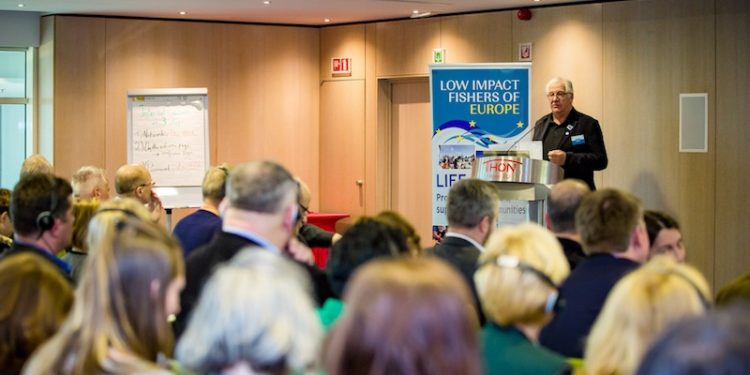A two-year EU-funded project supporting small-scale fishermen across the Baltic and North Sea has celebrated its closure with well-attended gathering in Brussels as small-scale fishermen and their representative organisations from Denmark, Germany, the Netherlands, Finland and Poland gathered to draw the conclusions of a project that over two years allowed them to drastically improve their representation within European and national decision-making process
The initiative, facilitated by the Low Impact Fishers of Europe Platform (LIFE) and having as panellists EU Commission’s and Farnet’s representatives, attracted the interest of a number of EU officials and stakeholders.
Since its start in 2016 the project Support measures for small-scale fishing in the Baltic and North Sea gave smaller scale, low impact fishing people the opportunity to strengthen their national networks and to make their voices heard in national and European fora, and in particular in the Advisory Councils.
In parallel, fishermen had the opportunity to reinforce their advocacy skills and their knowledge on marketing and access to EU funding in the framework of a number of dedicated workshops and best practice exchanges specifically designed to this end and organised in a number of locations across the Region by LIFE.
A number of attendees underlined how small-scale fisheries are the backbone of the fisheries sector and that in this light there is an urgent need to provide them adequate support tailored to their needs so as to allow European coastal communities to thrive in the long run.
The potential stemming from the co-operation with European structures such as Fisheries Local Action Groups (FLAGs), the importance of including their knowledge on traditional and sustainable fishing techniques into European fisheries management, as well as the need to apply Article 17, was also highlighted.
According to LIFE, for too long the CFP only met the needs of the large-scale sector, leaving small-scale fishermen, who represent 80% of the EU fleet, without appropriate support and regulations to allow family-run enterprises to survive.
In line with the requirements of the 2014 reformed Common Fisheries Policy, DG Mare took action and through this project provided a vital contribution to lay the foundations for an active inclusion of small-scale fishing in decision-making process.
Speaking on behalf of LIFE, executive director Jerry Percy thanked the European Commission for the opportunity and underlined how the results achieved demonstrate that an even limited financial support, if well managed, can generate massive benefits for small-scale fishing.
He commented that a first step has been made, but a number of challenges relating to fishing rights, access to markets and fisheries management still need to be tackled, adding that hopefully the majority of the EU fleet will be able to count on the support of its European decision-makers to succeed in this vital task.









